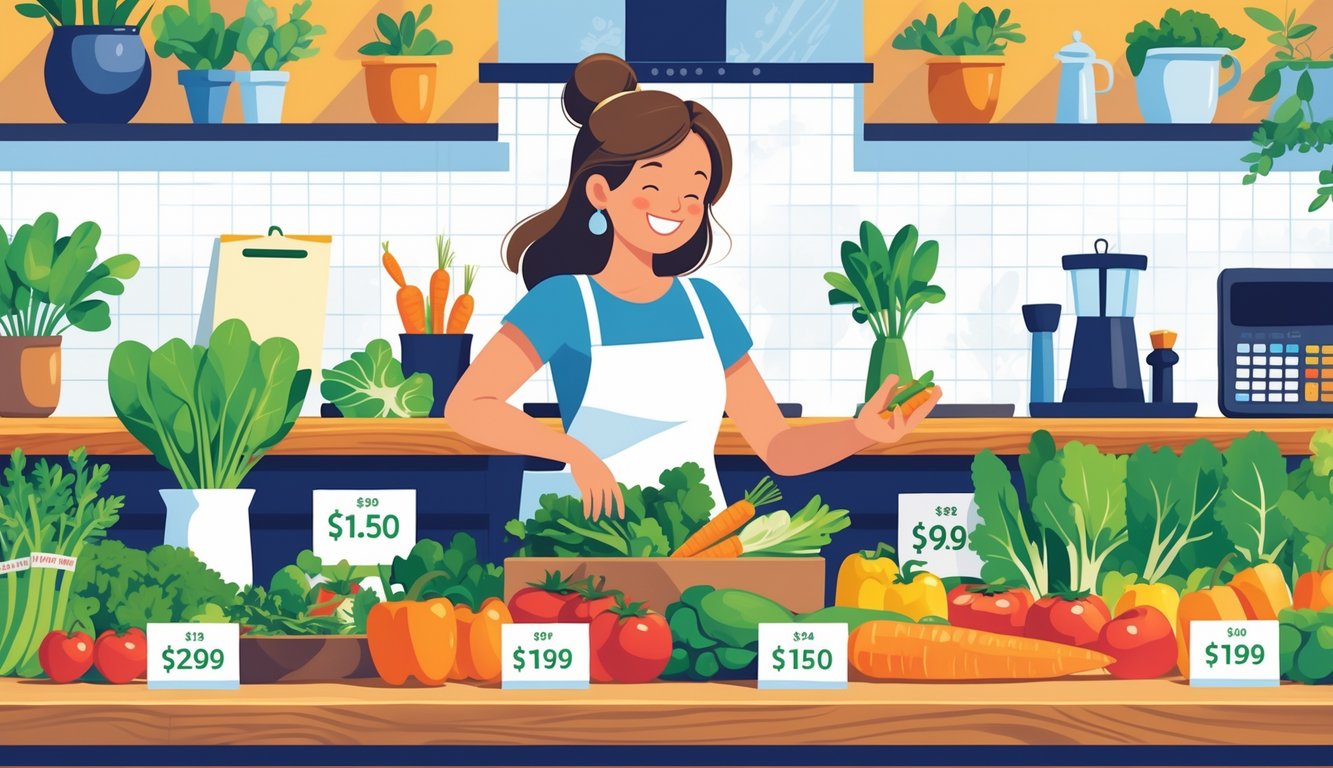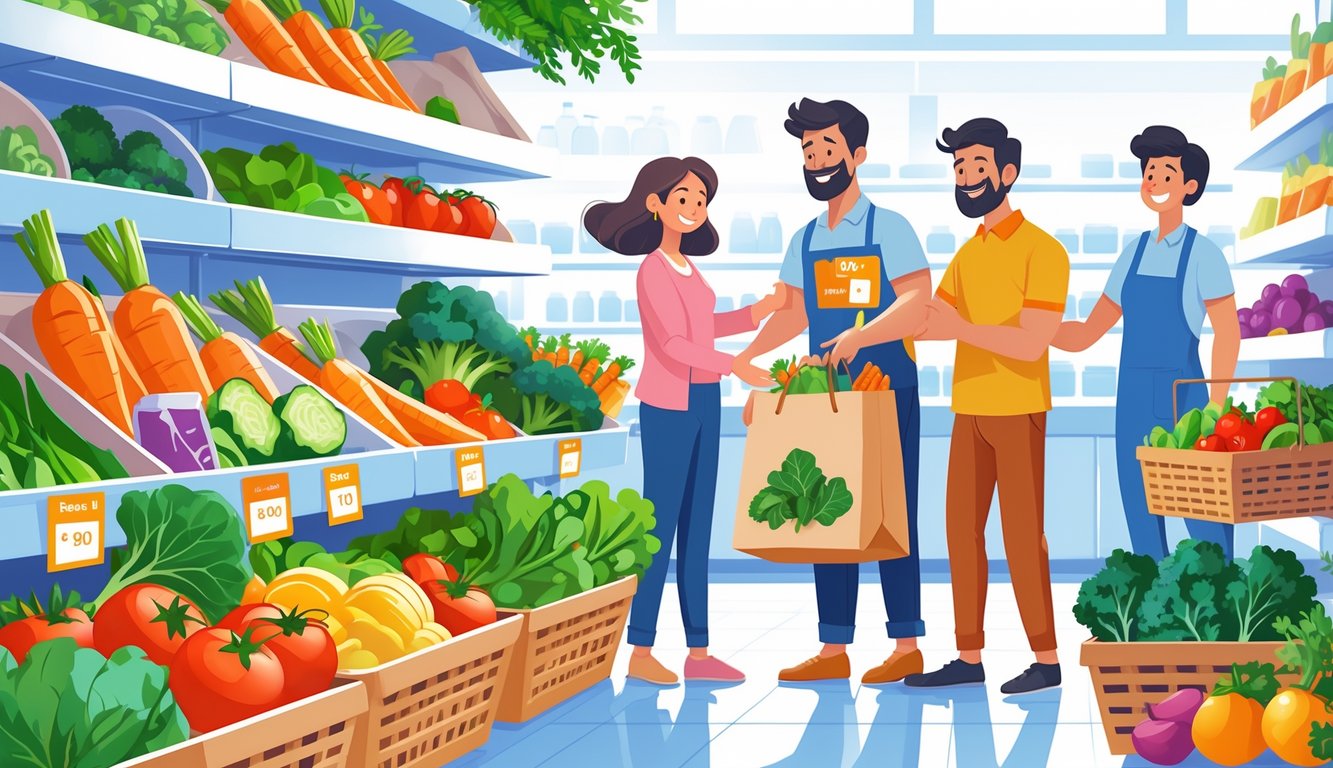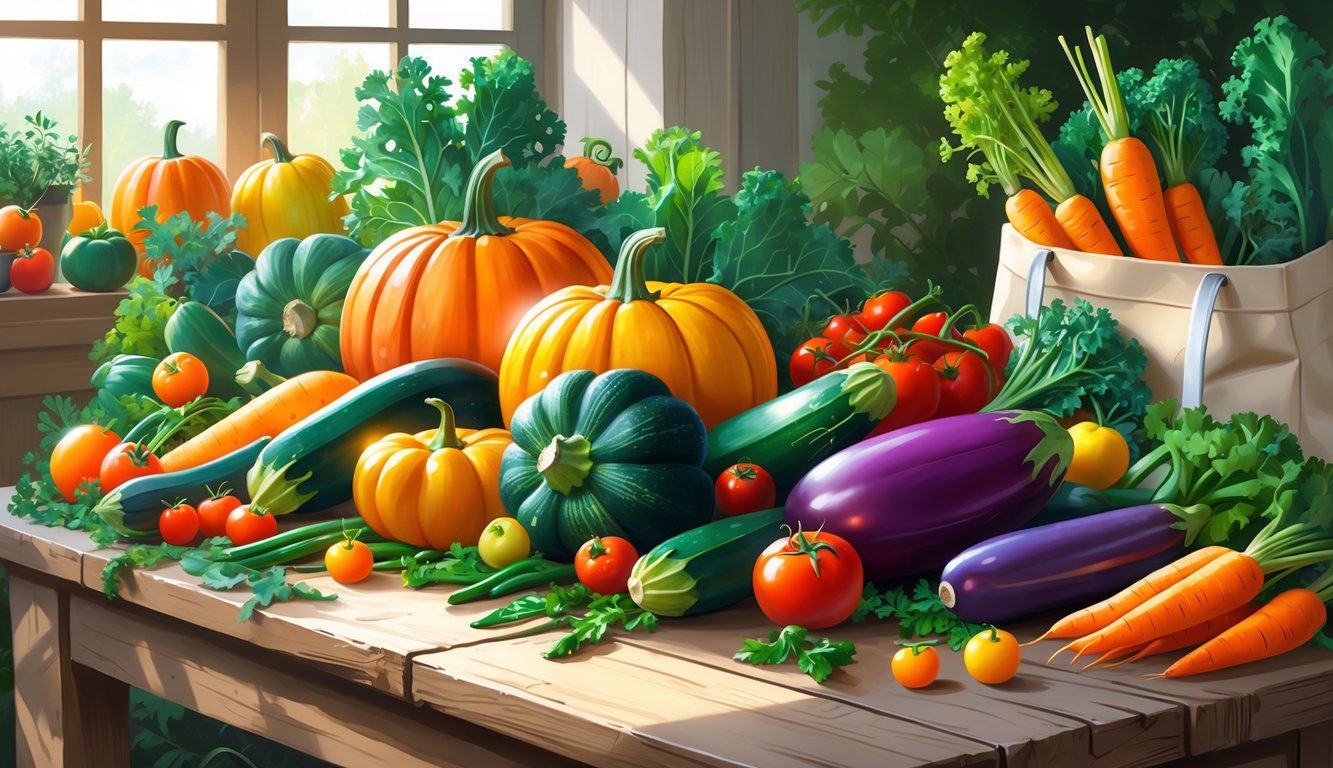
Let me just set the scene: I’m in the produce aisle, distracted as usual, staring at broccoli and zucchini, trying to remember which one’s the “deal” this week. Some stranger’s mumbling about “in-season” savings like it’s a secret code. Here’s the thing—eating what’s actually in season? Supposedly slashes your grocery bill by, what, half? I keep telling everyone at home that strawberries in December don’t count as frugal, but nobody listens. Whatever. Yahoo Finance says I’m right, so I’m clinging to that. And those pre-cut veggie trays? They’re a scam for people in a rush. I fall for them, too. Empty wallet, empty calories, same regret.
Somewhere between freezing kale stems for reasons I can’t remember (stock? compost? who knows), I realized all this coupon clipping and tofu buying is pointless if I don’t just pick smarter veggies. Nutritionists always say, “shop the perimeter,” but lately that’s just berries that cost more than my rent and lettuce with names I can’t pronounce. My grocery bill explodes because I keep ignoring what’s actually growing right now. So I bugged a local farmer—what’s everyone grabbing in June? Spinach, apparently, except peas on Tuesdays. The cashier told me she stocks up on carrots and onions because, “they’re cheap and you can’t kill them.” That makes more sense than anything I’ve tried with my color-coded spreadsheet.
Somehow, skipping those pre-sliced fruit tubs saved me twenty bucks, but now I’m the squash hoarder. And then I found a mountain of almost-dead bell peppers—where did those come from? If you freeze the stuff you can’t eat or just toss limp celery into soup, you’re not only saving money, you’re basically cheating at food waste. Real Simple backs this up. Sometimes the “smart” move is just using what you’ve got, even if it’s sad-looking celery starring in mystery stew.
Why Smart Vegetable Choices Matter for Your Grocery Bill

Spinach was expensive yesterday, carrots were dirt cheap. Why? Nobody explains this stuff. Prices bounce around and my food budget gets destroyed by snack cravings and random sales. If I don’t pay attention to what veggies are actually affordable, I just lose money. I mean, how does anyone keep up?
Understanding Produce Pricing
Produce aisles are chaos. Broccoli doubles in price, bell peppers tank, and it’s all blamed on “season.” I stare at those price tags, trying to remember what was cheaper last week. It’s a timing thing, not just about what you want. Seasonal veggies drop fast. Last spring, asparagus was so cheap I almost got sick of it, then it shot up and I abandoned a soup recipe out of spite.
And those “freshness” dates—total gamble. Sometimes the discount kale is a win, sometimes it’s a compost project. Grocery stores never say why prices change. Is it a flood? A truck broke down? No clue. If you stick to buying in-season and bulk, you dodge the worst of it. If not, you’re paying double for wilted greens because you got lazy. Maybe next week zucchini will be normal again. Or not.
The Link Between Vegetable Selection and Savings
Red peppers? Suddenly three bucks more than green. Cabbage? Dirt cheap, but do I want cabbage? Not really. Recipe blogs pretend budgets don’t exist. Buying veggies is sneaky—less about eating less, more about not getting tricked. Healthline says swap expensive stuff for cheaper options, and I try, but then I crave cherry tomatoes and regret everything.
Oh, and apparently we waste 40% of our edible food at home. Forty percent! That’s a USDA stat that lives rent-free in my brain. I buy radishes, forget about them, repeat. My old roommate would write out veggie lists, meal-plan like a robot, and actually save money. String beans and cabbage always beat arugula, not because of taste but because they’re cheap and reliable. Grocery shopping is like building a wardrobe—skip the flashy stuff, stick to what works, unless you want to regret your choices every time you open the fridge.
Seasonal Produce: Your Secret Weapon for Saving

Standing in the checkout line, watching prices climb on tomatoes that taste like nothing, is some kind of punishment. Here’s my “hack”—just buy what’s in season. It’s not rocket science. Prices go down, taste goes up, and you avoid buying flavorless vegetables that traveled more than you have this year.
Benefits of Buying In-Season Vegetables
Let’s get specific. British Dietetic Association says in-season produce is up to 30% cheaper. If you’re not seeing that, maybe you’re shopping at the wrong shop? Or maybe I am. Anyway, local spinach lasts longer than anything shrink-wrapped and shipped from who-knows-where.
Cooking’s actually fun sometimes when you use fresh, in-season stuff. Potatoes and peppers taste like food, not packing peanuts. Imported tomatoes in winter? I tried it once—never again. My local farmer, Paul, told me, “If you can smell a tomato, it’s ready.” That stuck with me.
Identifying This Season’s Best Buys
June is wild—supermarkets pile up UK radishes and new potatoes, and I’m the only one buying them. They’re half the price of last month’s imports. Cucumbers, early tomatoes, all labeled “British”—not those watery, flavorless ones. Out-of-season veg has more air miles than my passport and always costs more. I check Rachel’s Recipe Pantry or just ask at the market stall. Random tip: sometimes you get a discount on potatoes if you ask nicely.
Here’s my barely-organized cheat sheet for June:
| Vegetable | Typical Price Drop (%) | Taste Note |
|---|---|---|
| New Potatoes | 25% | Buttery, waxy |
| Spinach | 20% | Sweet, tender |
| Peas | 30% | Crisp, juicy |
| Cucumbers | 30% | Fresh, mild |
Seasonal Fruits and Vegetables To Watch For
Early summer is chaos—actual strawberries that smell like strawberries, fields full of soft fruit, spinach, radishes, all the good stuff. I’m skipping overpriced peppers (wait for July) and loading up on carrots, which are weirdly cheap and sweet right now.
Someone tried to sell me raspberries in December once. Never again. Double the price, no flavor. This month, asparagus and lettuce are the real deals, plus those messy salad leaves that still have dirt on them. If I’m lost, I check the M&S monthly produce guide. If it’s local and everywhere, it’s probably a bargain and tastes like food.